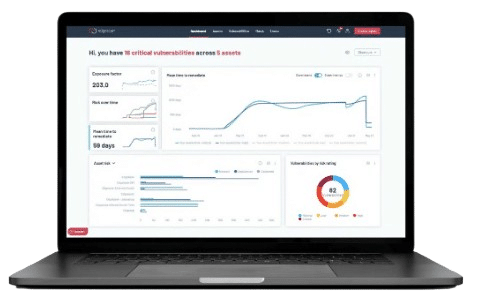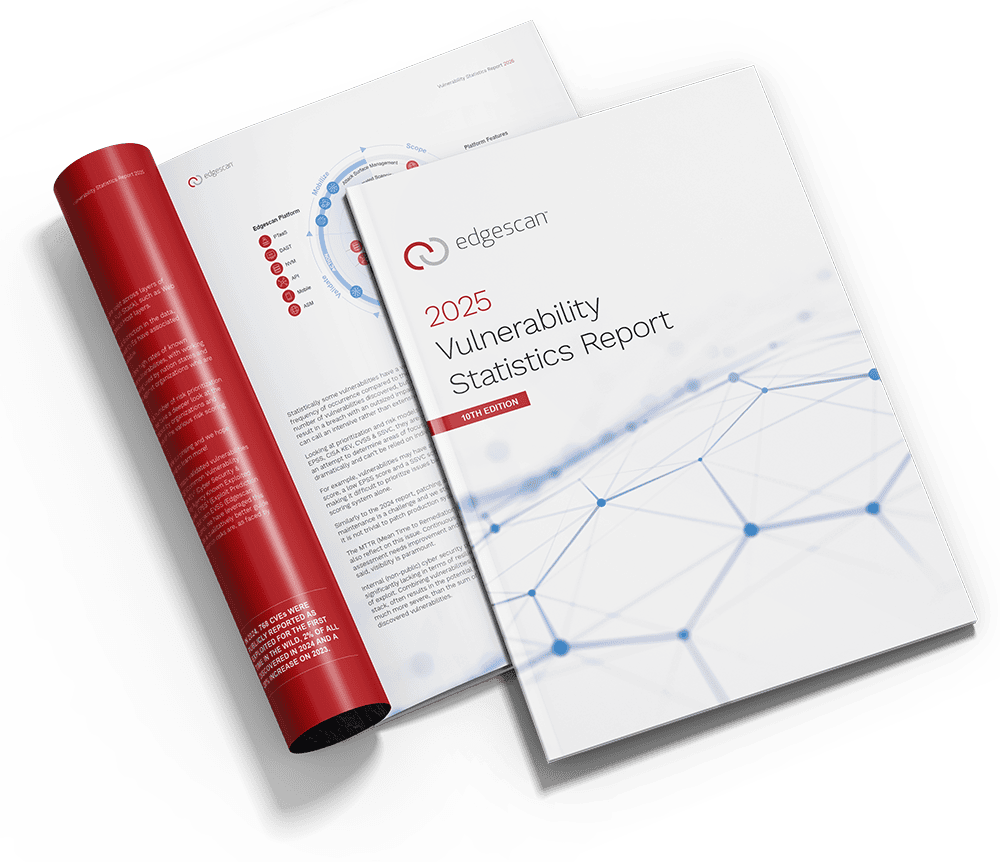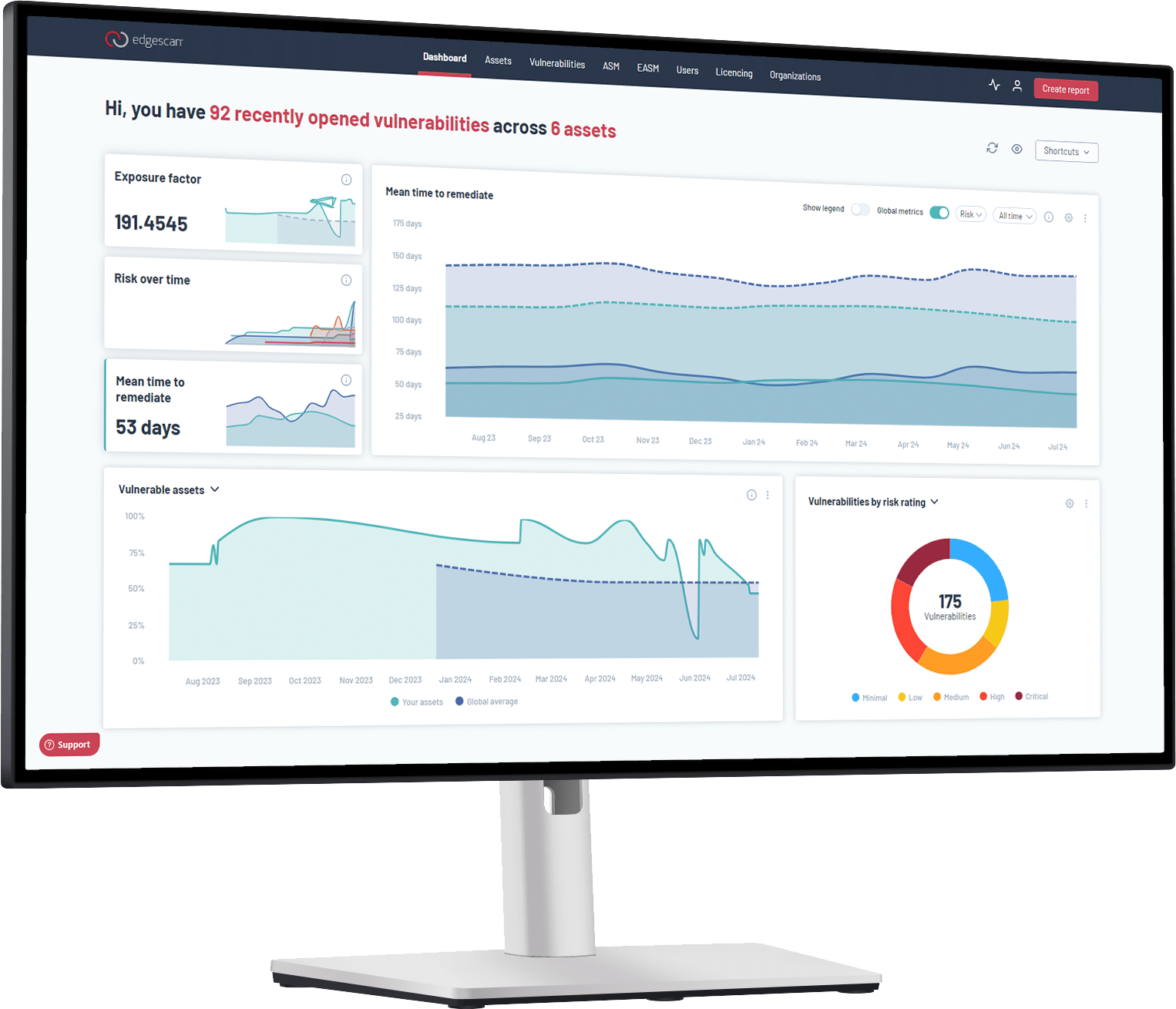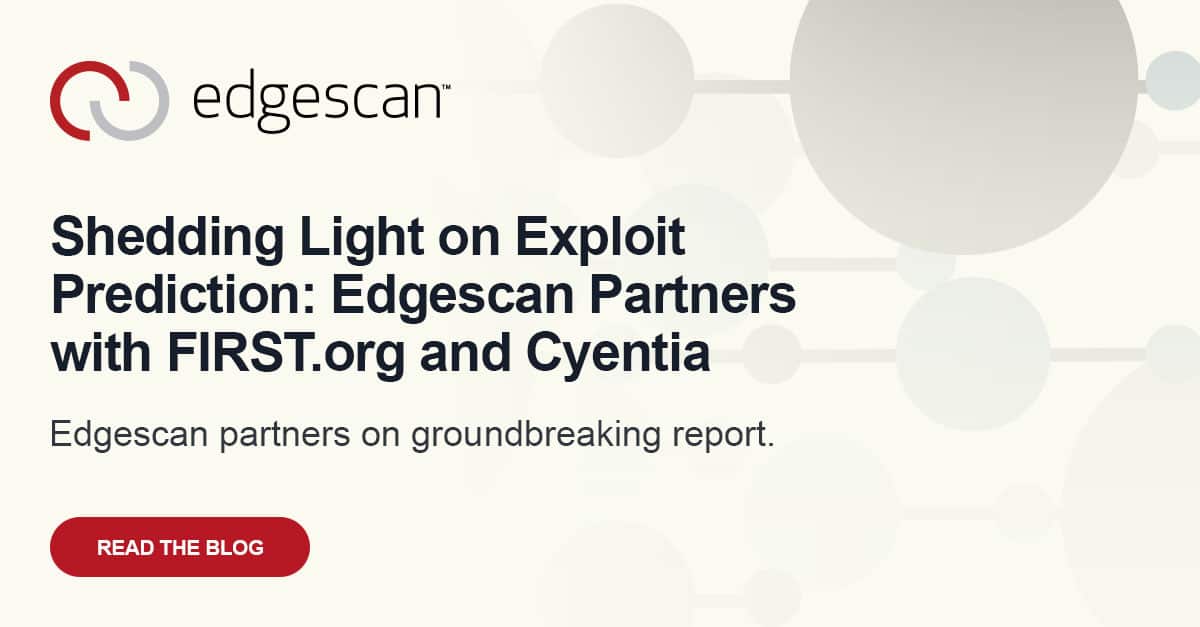Edgescan Partners with FIRST.org and Cyentia
At Edgescan, we constantly seek ways to enhance our vulnerability management capabilities and provide our clients with the most effective security insights. We’re proud to have partnered with FIRST.org and Cyentia Institute on their groundbreaking report, “A Visual Exploration of Exploitation in the Wild.” This comprehensive study delves into the performance of the Exploit Prediction Scoring System (EPSS) and offers valuable insights into vulnerability exploitation patterns.
Understanding EPSS and Its Importance
EPSS is a data-driven system designed to estimate the likelihood that a published vulnerability will be exploited in the wild. As the security landscape evolves, tools like EPSS become increasingly crucial for effectively prioritizing remediation efforts. The report provides an in-depth analysis of EPSS performance and compares it to other popular vulnerability scoring systems.
Key Findings from the Report
- Exploitation Patterns
The study reveals that exploitation activity is far from static. While nearly 14,000 vulnerabilities have evidence of exploitation, only about 10,000 had observed activity in 2023. This highlights the importance of continuously monitoring and reassessing vulnerability risks. - EPSS Performance
Each successive version of EPSS has shown improved performance in predicting exploitation. The latest version demonstrates strong results across a range of scores, offering organizations the flexibility to tailor their remediation strategies based on risk tolerance and capabilities. - Comparison with CVSS
Compared to the Common Vulnerability Scoring System (CVSS), EPSS performs better in predicting exploitation. For equivalent levels of effort, EPSS achieves almost 3x more coverage and over twice the efficiency of CVSS. - Widespread Exploitation is Rare
Interestingly the report found that widespread exploitation across organizations is uncommon. Half of all known exploited CVEs are never observed by more than 0.02% of organizations. This underscores the need for context when assessing exploitation reports.
Implications for Vulnerability Management
These findings have significant implications for how we approach vulnerability management:
Dynamic Prioritization: The fluctuating nature of exploitation activity emphasizes the need for dynamic, data-driven prioritization strategies
Balancing Act: Using EPSS for remediation prioritization requires balancing coverage, efficiency, and effort based on an organization’s specific risk profile and resources.
Context Matters: Not all “exploited in the wild” reports are equal. It’s crucial to consider the scope and prevalence of exploitation when assessing risks.
Long-Term Vigilance: While new vulnerabilities often grab headlines, the data shows that attackers continue to target older vulnerabilities. This highlights the importance of maintaining comprehensive, long-term vulnerability management programs.
How Edgescan Leverages These Insights
At Edgescan, we’re committed to incorporating these valuable insights into our vulnerability management solutions. By integrating EPSS scores and considering the patterns revealed in this study, we can offer our clients even more refined and effective prioritization strategies.
We’re exploring ways to:
- Incorporate EPSS scores into our risk scoring algorithms, providing a more nuanced view of exploitation likelihood.
- Develop dynamic dashboards that reflect the changing nature of exploitation activity over time.
- Offer customizable prioritization thresholds based on individual client risk tolerances and resource capabilities.
- Provide context-rich reporting beyond binary “exploited/not exploited” classifications.
Looking Ahead
The “Visual Exploration of Exploitation in the Wild” report offers a wealth of insights that will shape the future of vulnerability management. As proud partners in this research, we are excited to apply these findings to real-world security challenges.
We encourage all security professionals to read the full report to gain a deeper understanding of exploitation patterns and the performance of prediction models like EPSS. We can collectively work towards more effective, efficient, and risk-aware vulnerability management practices by leveraging this knowledge.
Stay tuned for more updates on how we’re integrating these insights into our services to provide you with cutting-edge vulnerability management solutions.








